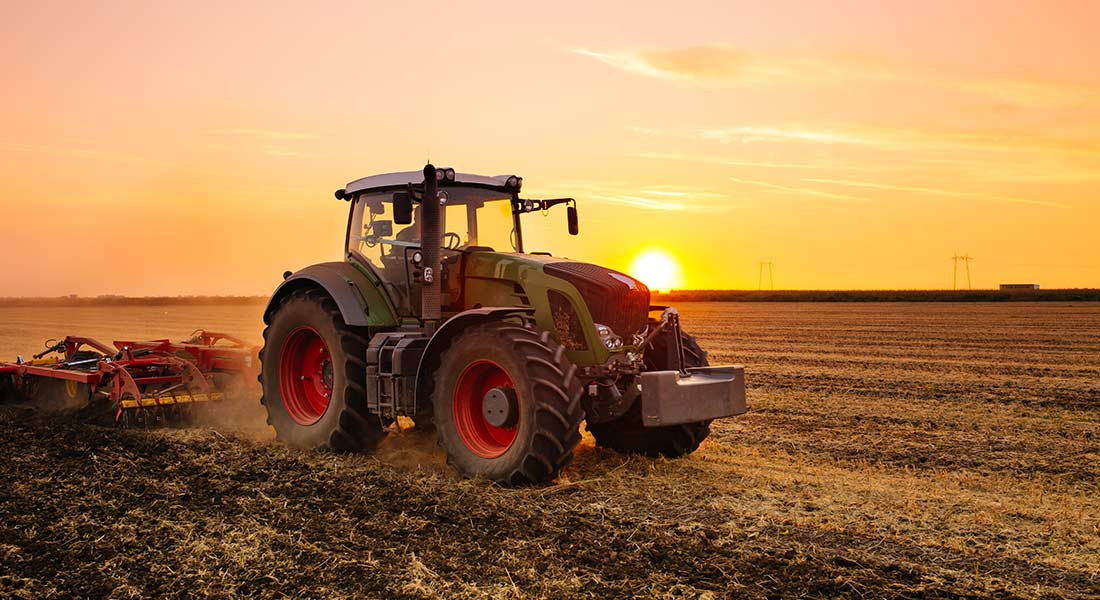Estimated reading time: 5 minutes
It is only natural to focus on the brand-new machines with stunning paint jobs, that “new tractor smell,” and the latest features and amenities if you are shopping for a tractor. However, a new tractor might not be the best option for your farming, agriculture, or construction business. Instead, it might make more sense for you to purchase a previously owned model that has been well maintained. A used tractor will have a much lower price point and, in most cases, will tackle jobs just as well as a new one.
Shopping for a tractor can be very time-consuming, not to mention confusing. However, this Balboa Capital blog article can help guide you in the right direction. It explains where to find tractors for sale online and in person. Also included are some of the key benefits of buying a used tractor and some helpful information about the various purchase options available, such as tractor financing.
Tractor dealers.
Buying a tractor from a local farm equipment dealer can help you navigate the countless makes, models, and options you will have. You will work closely with a dealership sales manager who will show you options based on your specific work requirements and budget and answer any questions you have. If the dealer has multiple locations in the area, additional inventory might be available, so make sure to ask.
There are farm equipment dealers in towns and cities throughout the United States that sell second-hand tractors. You can find them by searching online. Most tractor dealer websites list their inventory by make, model, year, and price. It is good to visit one or more dealers in-person to see the inventory before purchasing. You want to make sure you are getting the best possible deal.
Online equipment sellers.
With just a few mouse clicks, you can browse thousands of used tractor listings for sale nationwide. They are listed on equipment marketplaces that bring buyers and sellers together in a “virtual” marketplace setting. Although this is more convenient than in-person shopping, you will not be able to physically see the tractor, start its engine, or give it a thorough inspection. So, make sure you ask the right questions via telephone and email and get the tractor’s condition and history in writing.
Another thing to consider when buying a tractor online is the cost of shipping it to your location. Shipping fees will be lower if the tractor is available for local pickup or is located within a reasonable distance. If it is hundreds of miles away and requires a high shipping fee, you might want to look elsewhere. Contact the online seller and ask them to calculate the shipping cost, whether flatbed or carrier, before committing to a purchase.
Heavy equipment auctions.
Heavy equipment auctions are a great way to get a tractor without breaking the bank. Sellers who include their tractors at auctions are more likely to start the bidding at lower price points to guarantee that they get sold. That means you might be able to land a high-quality used model for significantly less than a private party or an equipment dealer would charge.
There are many in-person and online auction houses to choose from, and you can find them online. If you want to participate in an auction, do your research and become familiar with the process and policies of the auctioneer you select. In addition, you will need to become knowledgeable of the bidding options (e.g., onsite, online, or proxy), the bidding methods (e.g., reserved price, unreserved price), and the shipping costs.
Private parties.
Buying a used tractor from a private seller might seem more manageable and more affordable, but it might present you with problems if you are not careful. For example, suppose the seller cannot provide you with important information such as the original invoice (or bill of sale), proof of ownership, and repair history. In that case, you should stop the negotiation process and avoid moving forward with the purchase.
Most people are genuine and honest, but there is always the risk that a private party is hiding something. A worst-case scenario would be buying a tractor and finding out that it has an outstanding lien. If the tractor has an unpaid loan or financing payments due, this should be communicated to you at the start and disclosed in writing.
Used tractor checklist.
When buying a tractor, it is imperative to conduct a complete inspection and evaluate more than just regular wear and tear. Check for odd engine noises, engine/oil leaks, faulty wiring, oil pressure problems, low tire tread levels, and other potential issues. While running, you should also inspect the tractor’s engine to ensure the oil pressure registers upon startup, the voltage meter charges correctly, and the 3-point hitch and hydraulics work properly.
Please do not be embarrassed to ask the seller how many previous owners it had. In addition, it is vital to know the types of conditions (e.g., hot, cold, wet) the tractor was exposed to, as this could impact its performance in the future.
Purchase options.
Used tractors are more affordable than their new counterparts, but they can still put a dent in your finances. A small two-year-old model can cost upwards of $25,000, and a large used model can cost between $45,000 and $85,000. These prices do not include tractor implements. Used tractor financing is one of the most popular options among business owners in the farming, agriculture, and construction industries. Unlike a cash purchase, financing lets you keep your existing capital for future business needs and only requires predictable monthly payments.
The opinions voiced in this material are for general information only and are not intended to provide specific advice or recommendations for any individual.
